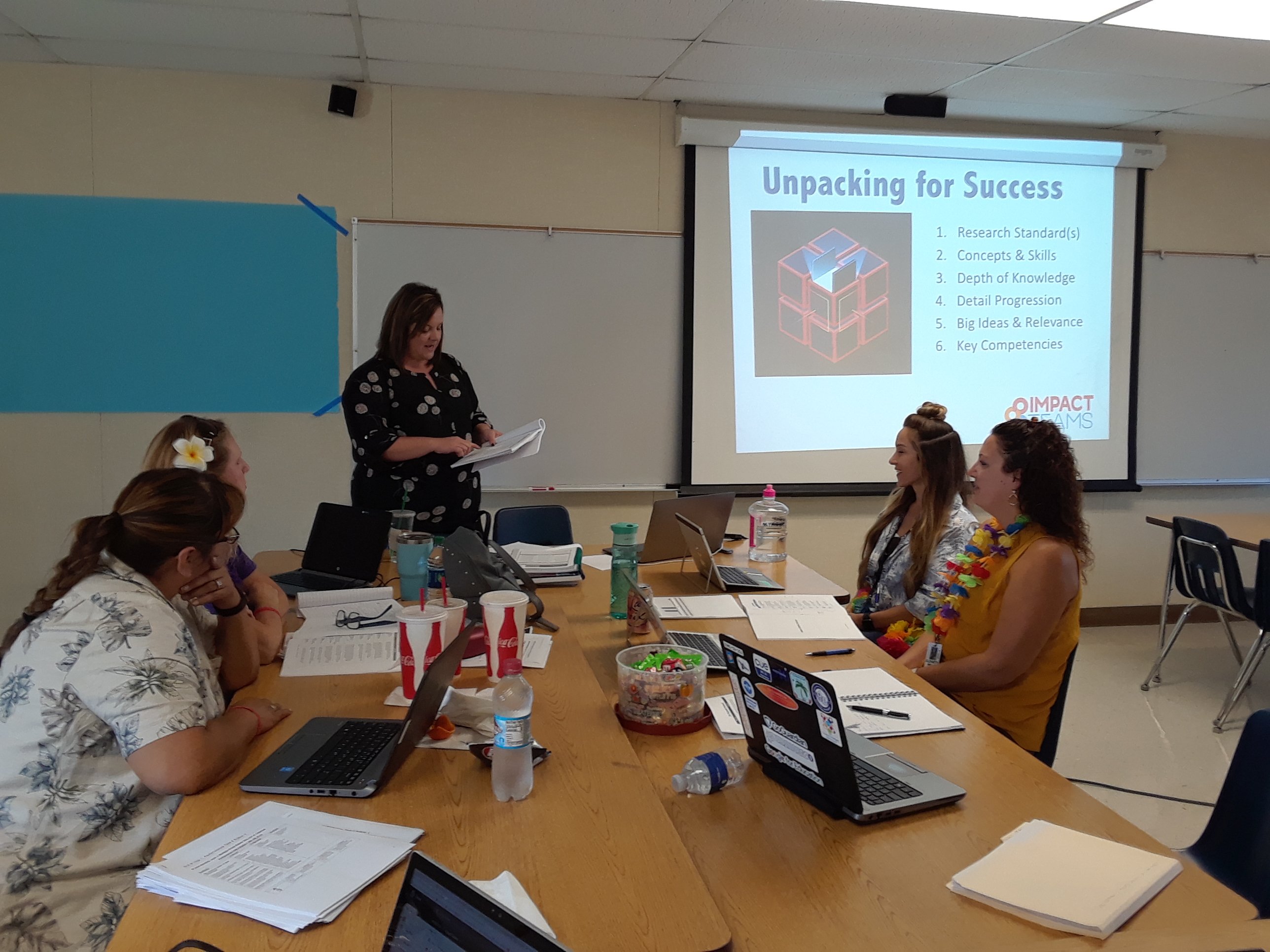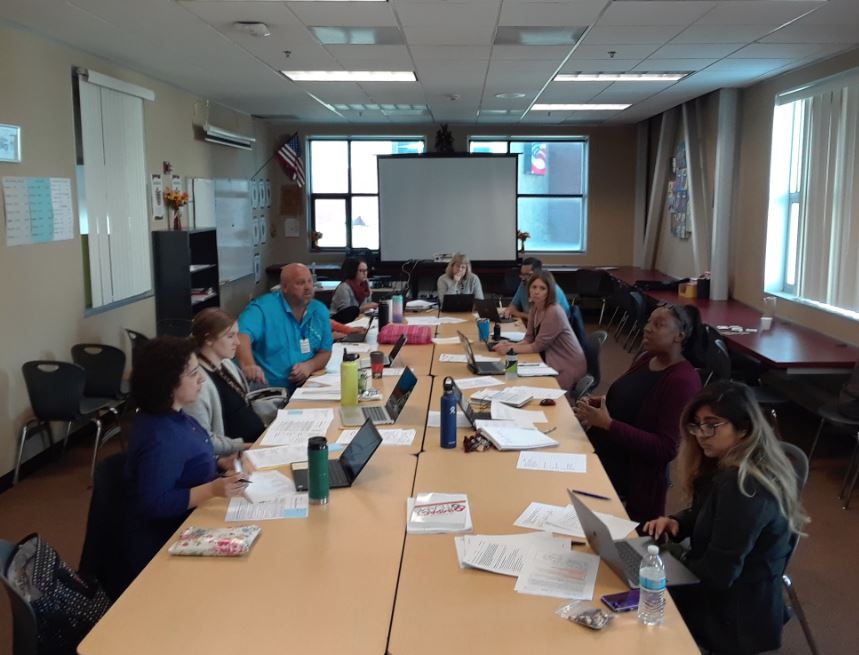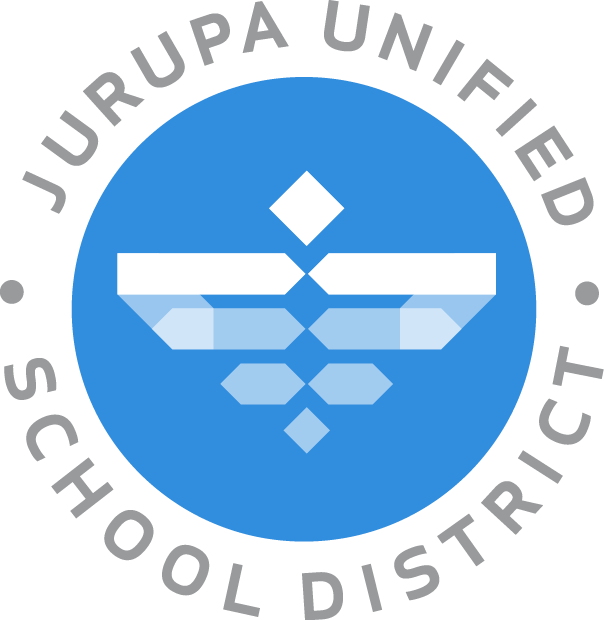Perhaps you've heard of Impact Teams – a super-teaching concept spreading through K-12 education and helping educators innovate, collaborate and refine their teaching methods based on student work. Impact Teams are small groups of educators who work in partnership with students to improve feedback, instill a growth mind-set that promotes learning without limits, and better understand how specific actions affect student success.
Jurupa Unified introduced Impact Teams last year at six pilot sites: Patriot High; Mission Middle; and Granite Hill, Mission Bell, Peralta and Van Buren elementary schools. This year, the program has expanded to all but three campuses, which will start the program next year. Each site has two to four teacher teams participating.
To learn more about how the teams work – and the difference they make – here is a Q&A with JUSD district and site leaders with expertise in the program:
 Question: Why do our schools need Impact Teams? How do students benefit?
Question: Why do our schools need Impact Teams? How do students benefit?Answer: I used to think Impact Teams were different work than what we were doing. Now I think it's a more student-work-centered way of designing curriculum. It's about feedback on learning. It helps students avoid being stuck in the 'Learning Pit'" – helping them think, reason, analyze concepts, explore complexity, dissect contradictions, and collaboratively discover answers (a process that pulls them from a pit of memorization or rote thinking).
Q: What are three things that Impact Teams have led educators to do differently?
A: First, teacher teams co-create criteria for success and calibrate their understanding of the standard to give students feedback. We don't just look at data; we look at actual student work to drive our collaboration on next steps. Second, students self-assess and peer-assess their work to provide feedback to each other, based on a rubric/success criteria. Third, students can answer the three feedback questions: Where am I going? (What is the learning goal?) Where am I now in relationship to that goal? What's my immediate next step?
Q: In what specific, concrete ways do Impact Teams make a difference for students?
A: Clarity. Teachers have clarity on standards-based instruction. Students have clarity on their teacher's expectations for mastery.
Q: Can you share a specific example of how the teams have delivered innovation or effected change?

A: At Van Buren Elementary, Impact Teams have meant an influx of new practices and strategies. Teachers have taken unique approaches to building lessons that model peer feedback and coach students to build success. The result: more data-driven decisions and deeper collaboration to meet the needs of our students.
At Mission Middle School, our eighth-grade English Language Arts Impact Team has delivered innovation through the use of peer feedback. Feedback throughout the year shows that students and teachers are internalizing the criteria for success. The students have responded to this feedback to improve their writing and this has helped students feel more successful as writers.
Q: Some educators have described Impact Teams as transformational. How so?
A: At Van Buren Elementary: First, they have transformed what collaboration looks like at Van Buren Elementary. Data analysis is increasing and conversations are deeper with respect to our plans. Second, Impact Teams have transformed what is seen in the classroom, building students' understanding of, and responsibility regarding, their learning. They are empowered to discuss and support one another through teacher-guided discussions that get to the core of learning standards. Finally, Impact Teams have increased teacher capacity on standards and strategies to address student needs. The teams are redefining what occurs in our classrooms!"
At Granite Hill: This has been extremely helpful in unpacking (understanding layers of) the standards and developing tools and strategies to teach. Using success criteria has helped students understand expectations and meet standards. At the same time, collaboration has helped with continuity in grading/expectations, analyzing student work, and determining next steps and goals. Finally, research on standards and best practices, and sharing of ideas and strategies, have brought clarity and focus to our teaching practices."
At Mission Middle School: Teachers' understanding of student learning is deepening and they are thus providing detailed and targeted feedback to students, which in turn is transforming students' understanding of the concepts, whether it be in science, reading or writing. The experiences our students have in the classroom through the Impact Team process are deeper and more impactful.
Q: What plans does JUSD have for Impact Teams going forward?
A: To increase the number of teacher teams, and use the process to improve student efficacy (defined as “the ability to produce a desired or intended result").
Q: What else would you like readers to know about Impact Teams?
A: That they are hard work – but rewarding for both teachers and students.

